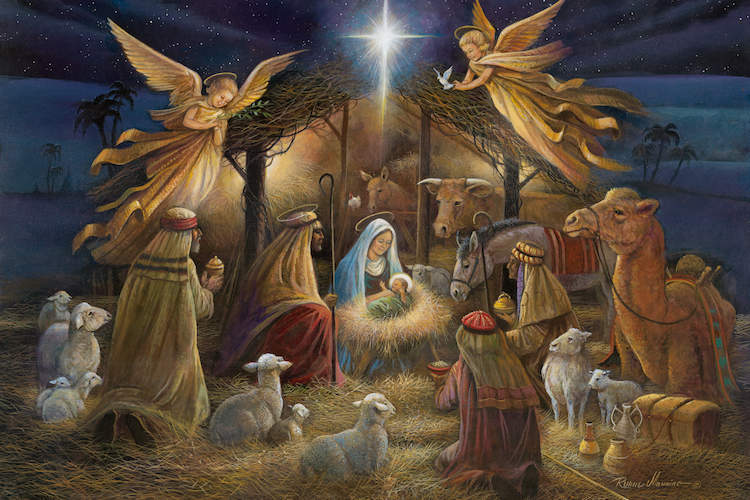The Nativity and Eternal Life Eternal life appeared incarnate when Christ was born in Bethlehem. Eternal life was revealed and seen and touched, after it had been concealed in the Father. But what is the value of this eternal life if it simply appeared once in Bethlehem two thousand years ago, and we look to …
The Nativity and Eternal Life
Eternal life appeared incarnate when Christ was born in Bethlehem. Eternal life was revealed and seen and touched, after it had been concealed in the Father. But what is the value of this eternal life if it simply appeared once in Bethlehem two thousand years ago, and we look to it as a merely historical event? We must correct this view, for eternal life is above history, and it is impossible that eternal life should enter our world and remain contained in a historical event. Rather, the world cannot contain it! So, it is important that we approach the Nativity not as an event in history, but as a revelation, and unveiling of eternal life, divinely personified and incarnate.
This is what is meant by the birth of Christ. It is immeasurably deeper than the historical event, for it was an event that extended into the very depths of God. It was essential that this should take place in order for eternal life to take shape in human consciousness, being actually seen and touched and witnessed. The apostle Paul expresses it thus: “God appeared in the flesh” (1 Timothy 3:16.) That is, the eternal life that was with and in God appeared in the flesh; that is in a person.
What was God’s aim in revealing eternal life incarnate in a person? It is clear that from the very beginning, from the first creation, God wanted man to live with him eternally, as a creation under him enjoying all the glory of God. So the birth of Christ has a clear and specific aim, and that is the granting of eternal life to man. Now as we have clearly shown, life cannot exist without a person, and so the gift of God’s eternal life to man had to take place in his blessed Person, for eternal life cannot dwell in anyone without God.
This is what the apostle Paul sensed in the depths of being when he felt eternal life pulsing through his whole being, his limbs, his spirit and his mind. But he did not sense that it was simply a power; he was aware of another Person, the Person of the Son of God Himself living in him. “It is no longer I who live, but Christ who lives in me” (Galatians 2:20.) Saint Paul here speaks not simply of new ideas, or a mental renewal, or a change in his way of life. He is speaking of Christ’s taking possession of his whole life.
Eternal life, then, can never be received apart from Christ. In order for man to share in eternal life with God, it was essential that the eternal life that was God’s be incarnate and that Christ be born a perfect person, so that He might give us, through his union with us, the eternal life that is in God.
By: Fr Matta El Maskeen (Fr Matthew the Poor)










